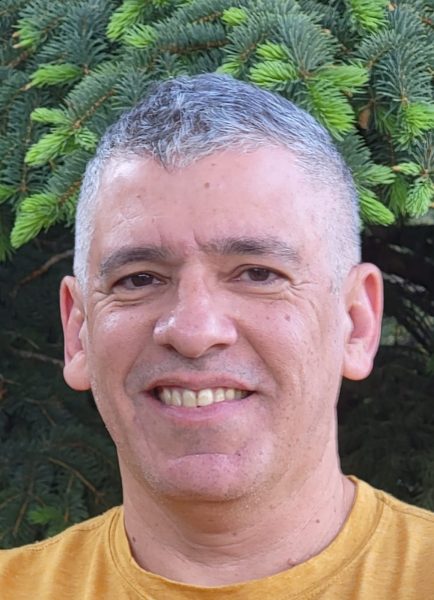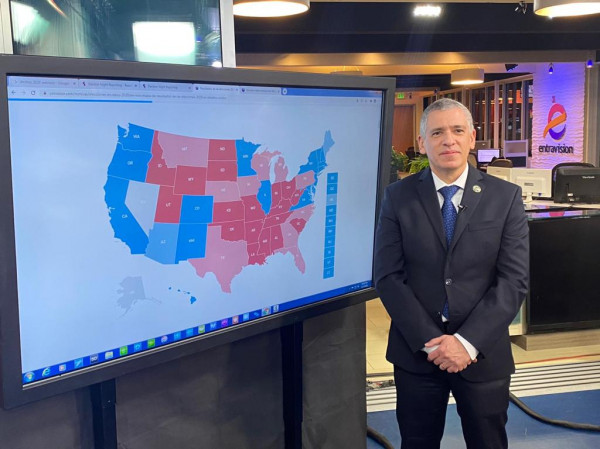Sagás Wins Fulbright to Teach – and Learn – about Race and Ethnicity in Bolivia
Joshua Zaffos
Relations between the United States and Bolivia have been tense – to put it modestly – in the last 15 years. From 2006-2019, Bolivian President Evo Morales – the country’s first ever Indigenous-born president and a socialist and former coca growers’ union organizer – was a bold critic of past and present U.S. interventions and policies in Latin America. Neither the U.S. nor Bolivia have appointed ambassadors to each other’s countries since 2008. The current Bolivian president, Luis Alberto Arce, served as Minister of Economy and Public Finance under Morales and has already had bristly relations with President Joe Biden’s State Department.
Strained and dis-engaged international political relations can trickle down to public attitudes, ideologies and perceptions of other countries, too.

“Bolivia, as a country, is so distant from our lived experiences and far outside most of our views and thoughts,” said Colorado State University Ethnic Studies Professor Ernesto Sagás, who teaches about how race, ethnicity and identity influence politics. That is a shame in his view: The Bolivian Indigenous and farmworker-led movement that put Morales in power offers a fascinating cultural revolution to study and interpret – particularly for Americans who are re-examining and challenging the systemic treatment and power structures of ethnic and racial communities today.
Sagás will widen his own studies to Bolivia in Spring 2022 after winning a Fulbright Award to lecture and conduct research at the Universidad Católica Boliviana in La Paz, Bolivia.
“This issue of race and ethnicity is very salient in Bolivia,” said Sagás who is also a political analyst for Univisión Colorado. Bolivians have historically identified along racial lines, such as white, mestizo, cholo, or as members of Indigenous communities, such as the Aymara, creating overlapping identities. Those identities are far more complex — and fluid — than the white/non-white racial binary employed by Americans since colonial times, sometimes referred to as “the one-drop rule.” In other words, Bolivians and Americans use a different lens to see race, which is but a social construct imagined and reproduced by human beings, said Sagás. So, citizens from both countries can learn from each other about the folly — and grave consequences — of using race as a social marker.
Sagás grew up in Puerto Rico speaking Spanish with his family and visiting relatives in the Dominican Republic and Cuba. Throughout his academic career, Sagás has focused much of his research in the Dominican Republic and other Caribbean nations, understanding attitudes and ideologies related to mestizaje, or race mixing. In places like the Dominican Republic and Haiti, identity and privilege are often defined by race; Afro-Caribbean identity and dark skin color have long played into negative perceptions and prejudices among the dominant (typically white) populations and marginalized groups themselves too. Dominant ideologies of mestizaje have created a social pecking order based on skin color and appearance, but also undergirded by class. However, ethnic identities, such as groups who identify as Indigenous, are generally absent since native Taíno populations of the Caribbean were functionally exterminated centuries ago. (Though some Caribbean people and communities do still identify as Taíno.)
Race, on its own, is not such a comparatively salient issue in Bolivia, separating it from many other Latin and Caribbean countries and the U.S. Instead, identity has long been defined by whether someone claims Anglo or European ethnic identity or to be part of the country’s diverse Indigenous cultures – or both.

“In Bolivia, ethnicity is a nation within a nation,” said Sagás, and the Morales-inspired movement has elevated Indigenous communities to represent a growing political force. There really is no comparative situation in Caribbean countries or the United States. How ethnicity versus race as a driver of identity and how it may influence different groups’ ideologies and attitudes toward mixed-race identities and communities will be the focus of Sagás’ research as a Fulbright scholar in Bolivia.
“I believe that a comparative study of Bolivia and the Dominican Republic will help shed light into how the creation of a racialized Other in racially mixed (i.e., mestizo) societies in Latin America,” Sagás wrote in his Fulbright proposal, “cements a myth of racial equality among ‘citizens’ while fostering racial discrimination and exploitation of the Other.”
Sagás will also teach several short American Studies courses in Spanish while at Universidad Católica Boliviana. Those classes will introduce Bolivian university students to U.S. race, class and gender topics; contemporary social and political issues; and Latinx populations in the United States. The main goal of the Fulbright program is to promote understanding between citizens of the United States and those of other nations, and these courses as well as public lectures will help Bolivian students, faculty, and the general public understand the complexities of American society and its political system. Ultimately, these courses and lectures will help generate a much-needed dialogue between the peoples of both countries outside of traditional political channels, said Sagás.
Through his research and experiences during the program, he also plans to develop a course at CSU, Race and Ethnicity in Latin America, when he returns.
“I’m looking forward to the challenge of portraying the nuances of the U.S. to Bolivian students and just the experience of teaching at a foreign university,” Sagás added. “I also want to see what is going on in Bolivia from a U.S. academic perspective.”